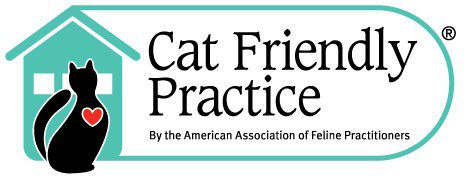Are you interested in adding a cute pet to your family? Have you ever thought about getting a ferret? These charming little pets are absolutely delightful to have around. They are incredibly entertaining and will definitely keep you on your toes! However, Ferrets need a significant amount of affection and attention. In this article, a St. Cloud, MN vet lists some things you should know before adopting a ferret.
They Will Attempt To Run Away
Ferrets are adept at escaping confinement. They have a remarkable ability to squeeze through even the tiniest openings, such as shower drains! They’re very good at maneuvering into narrow spaces beneath beds and couches. You’ll need to keep a very close eye on your tiny pal when they are out and about.
Choosing the Right Cage for Your Ferret Is Crucial
Your pets need a large, comfortable cage. Make sure to include a variety of enjoyable toys, cozy bedding, and essential accessories like dishes and a litterbox. Consult your veterinarian for specific advice, including recommendations for bedding and toys.
They Have A Tendency To Bite
Occasionally, ferrets may nip, whether it’s during playtime or if they get startled. It’s important to mention that this doesn’t necessarily mean they’re being aggressive. Ferret kits also playfully bite each other. Their thick fur offers them a shield against their energetic housemates. Our skin, however, is defenseless against those teeth. Those with small kids may want to consider this.
Ferrets Need Some Grooming
While baths aren’t necessarily essential for ferrets, it is important to regularly clean your pet’s ears and trim their nails. Hairballs can also be an issue. Ask your vet about hairball preventative products.
They Need Veterinary Care
Ferrets may experience some health issues. It’s important to stay informed about various health concerns, including cancer, parasites, adrenal disease, ear mites, heart disease (specifically dilated cardiomyopathy), and tumors.
Here are a few things to keep an eye out for:
- Losing weight
- Swelling in the abdomen
- Lethargy
- Vomiting
- Salivating
- Coughing
- Trembling
- Breathing Trouble
- Lack of appetite
- Dark or Bloody Stools
- Hair Loss
- Itching
- Seizures
- Sneezing
If you notice anything unusual, contact your veterinarian in, immediately.
They Need Daily Free Time
Extended periods of confinement in a cage can lead to boredom and restlessness. Make sure that your pet has access to a secure area that has been adequately ferret-proofed and provides them with sufficient free time daily. This is also a good chance for you to pet and play with your furry little pal!
They Have Unique Dietary Needs
Ferrets have specific dietary needs. They prefer a diet that mainly consists of meat and thrive on regular, small meals.
It is crucial to ensure their diets have the correct balance of protein and fat. For optimal nutrition, it is recommended that your pet’s food contains at least 20 percent fat and around 40 percent protein, while keeping carbohydrates and fibers below five percent. There may be some slight differences in this case. For instance, a pregnant or young ferret may need a higher fat diet, possibly up to 30 percent.
Reading pet food labels can provide valuable information about the quality of a specific product, but it can be a little tricky. Look for a product that clearly states meat as the main ingredient on the label. An ideal ferret food should contain suitable fats and fatty acids, such as chicken fat and omega 6 or 3 fatty acids. Avoid products that contain sugary ingredients like corn syrup or sucrose, grain-based proteins, and fillers such as corn or rice gluten, soy meal, and soy flour.
Another point worth considering? Ferrets can develop a strong fixation on their favorite foods. Although it may seem cute, it could cause major problems if your pet’s favorite food becomes scarce. If you have a kit, help it get used to eating a bit of variety.
These guys really love duck soup. You can easily find recipes online. (They don’t necessarily have to include duck.)
It’s crucial to understand what can potentially harm your beloved pet. The list includes various items such as sweets, dairy products, raisins, fruits and vegetables, chocolate, grapes, avocado, xylitol, rice, salt, peanut butter, nuts, grains, and anything high in sugar.
Make sure to consult your veterinarian for personalized guidance on food choices, portion control, and feeding schedules.
They Require Climate Control
Ferrets need to be kept cool in the summer and warm in the winter. During hot weather, a helpful tip is to freeze small water bottles and place them in your pet’s cage under a thin blanket. Consider providing your ferret with a small pool for some splashing and playtime. Adding extra blankets during the colder months will provide them with more warmth and comfort. (Hint: many ferrets enjoy it when their owners wear hoodies with pouches, since those pouches make perfect little hideaways for them.)
Kits Are Cute And Frisky
Ferrets are incredibly lively during their youth. They’re also almost ridiculously cute as babies. Prepare to invest a considerable amount of time and effort into taking care of a young ferret. (It is recommended that ferrets younger than two months stay with their mothers for their well-being.)
They Are The Most Adorable Criminals In The World
Ferrets are known for their knack of collecting various items. They will eagerly grab anything within their reach. Actually, they might just be the cutest little troublemakers in the world. (Interesting fact: thieves once trained them to pick pockets.) They will take your essential items like cell phones, car keys, and inhalers.
It’s important to monitor the areas where your pet likes to hide its things. If something goes missing, start your search there.
They Need Company
Ferrets are highly social animals and flourish when they have a companion or two. Finding the ideal match is undoubtedly crucial. (Bonus: you’ll get to experience an additional dose of ferret charm.)
You Can Adopt Them
If you’re thinking about bringing a ferret into your home, it’s a good idea to see if any are up for adoption at a nearby rescue organization or animal shelter. We are always thrilled to witness pets getting a new beginning!
You’ll Need To Make Sure That Your Space Is Safe For Ferrets
Ferrets have an insatiable curiosity and a talent for infiltrating any and all spaces they can get into. It’s important to ensure that anything potentially hazardous is kept safely away from those cute little paws. This includes various small and sharp objects, as well as items wrapped in plastic or tied with ropes and cords. Chemicals, medication, and toxic plants are also on the list.
When ferretproofing, crouch down to see things from your pet’s point of view. Ferrets are quite skilled at squeezing into tight spaces, like futons, recliners, and even couches, so be sure to close off any gaps or openings located behind and underneath your furniture and appliances.
Schedule An Appointment With A St. Cloud, MN Veterinarian
Did you just get a new ferret? Are you considering getting one of these adorable little pets? If you ever need any help, feel free to reach out to us. We are here to assist you as your nearby pet hospital in St. Cloud, MN!












